To “Support One Another,” as well as Tribal Youth Education
Elders from Michigan’s federally recognized Tribes convened at FireKeepers Casino Hotel (FKCH) the first week of April for the 2024 Spring Michigan Indian Elders Association (MIEA) Conference, creating an arena for dialogue, exchange, and communal growth.
Hosted by NHBP, this year’s spring conference drew in nearly 200 Elders, each bringing their unique perspectives and insights to the table.
Formed in 1997, the MIEA serves a crucial role in addressing the diverse needs of Tribal Elders across Michigan. With representation from 11 of the state’s 12 federally recognized Tribes, including NHBP, MIEA is a forum for Elders to voice concerns, share knowledge and foster a sense of unity and mutual support.
Traditionally held three times a year, the conference faced disruptions due to the pandemic. However, this recent gathering marked a hopeful return to in-person meetings, with delegates expressing optimism about resuming the full schedule of conferences.
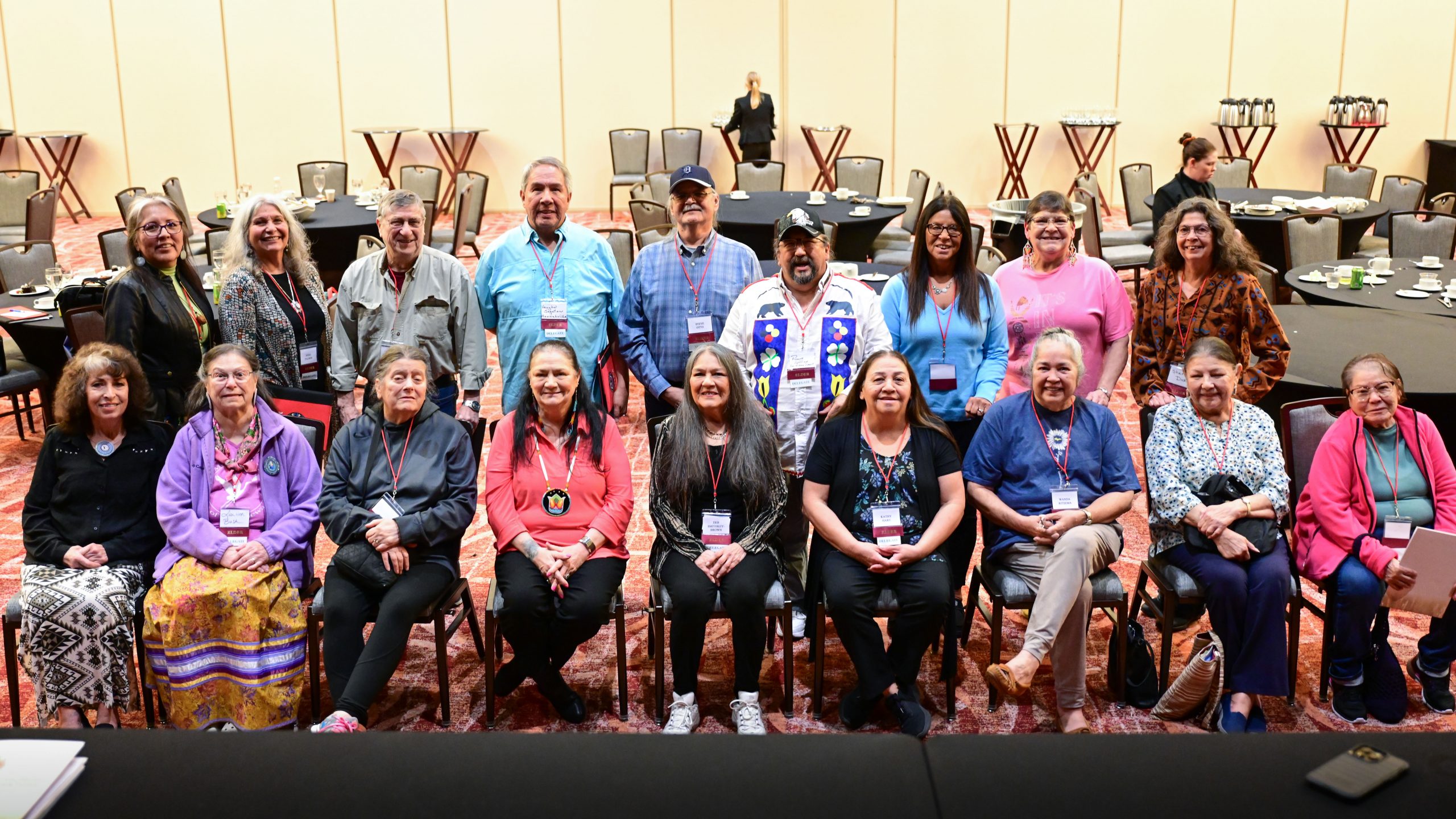
“We are slowly getting back on track, and I think we are all very optimistic that this year, we will finally have three in-person meetings. I am looking forward to moving forward in a good way,” said MIEA Secretary Jodie Palmer (Gun Lake Tribe).
MIEA serves as a vital platform for social interaction, allowing Elders to connect, share stories, and discuss common challenges and ideas. This meeting provided a great foundation for MIEA to be re-energized and establish working committees to complete various tasks.
“That’s the purpose of these meetings: to get our Elders together, to discuss common problems and ideas, and to support one another,” said MIEA President Roger LaBine (Lac Vieux Desert Band of Lake Superior Chippewa Indians).
The agenda for the spring conference was filled with activities designed to engage and inform attendees.
Day one kicked off with a delegate’s dinner, in which Gradus TenBrink was in attendance to represent NHBP as an Elder, followed by an evening of Mega ShiShiBé.
Day two included a robust agenda, which carved out time for morning and evening business meeting sessions.
Afternoon workshops led by team members from the NHBP Membership Services and Culture Departments offered attendees hands-on experience in creating Leather Pouches, Turtle Shakers and Pony Bead necklaces.

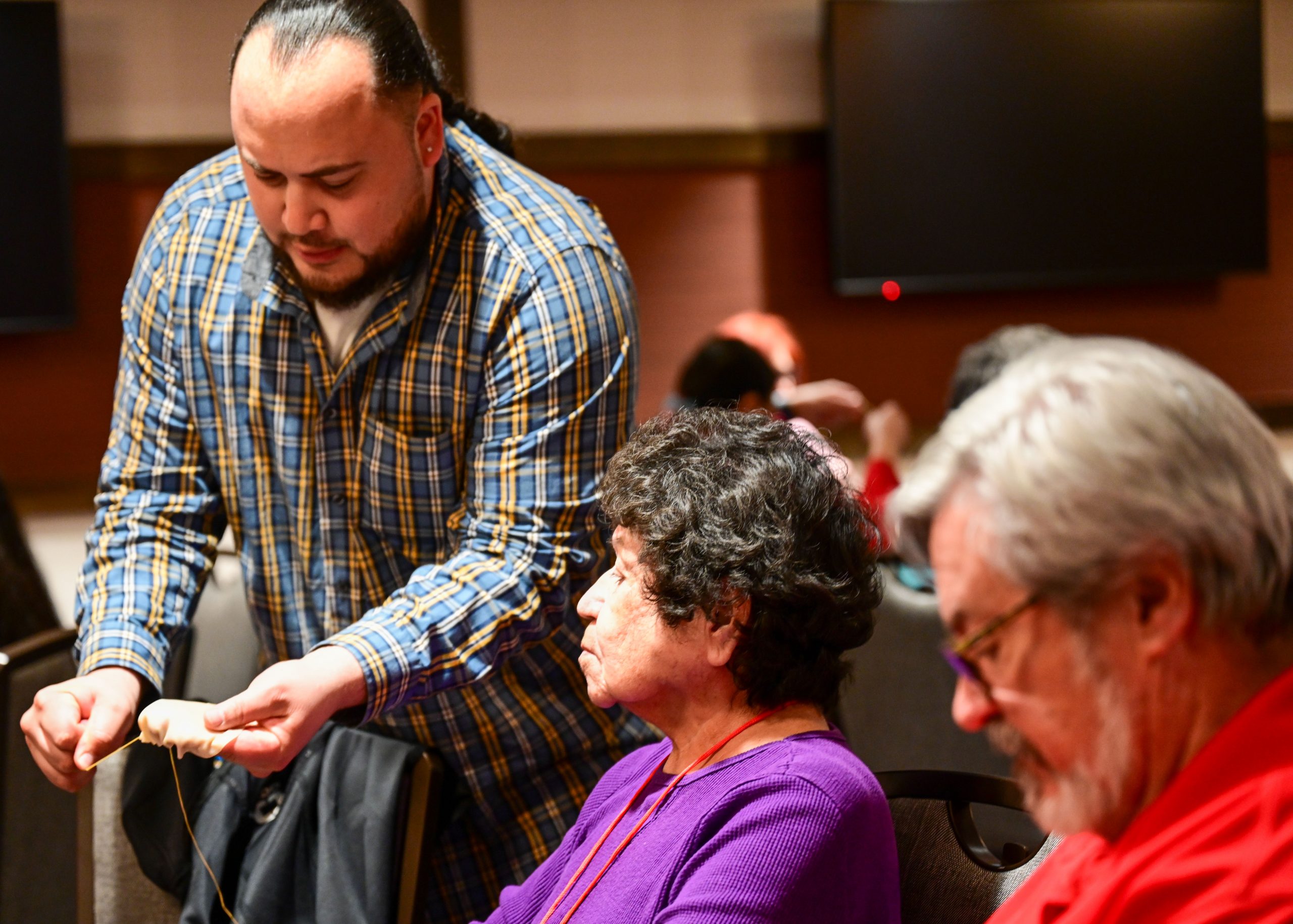
Informational sessions included a presentation by NHBP Tribal Member and Food Sovereignty Coordinator Nickole Keith alongside Domestic Violence Victim Advocate Patti McClure. Attendees learned about NHBP Food Sovereignty initiatives and how they collaborate with the Victim Services Department to serve our Community better.
“A lot of times, people will ask why the Victim Services Department is working with the Food Sovereignty program?” said McClure. She went on to explain how NHBP received a grant authorized through the Violence Against Women Act (VAWA) act, which granted all Tribal Courts the ability to prosecute non-Native people who come onto Tribal lands and commit domestic violence offenses.
“Along with that grant, we knew we needed resources, but we weren’t sure what we needed. At the time, I was in the shelters quite a bit, working with clients. I found out that we had clients living in these shelters who were supplementing their breast milk and their baby formula with water, to stretch it out. As I left there one day, I thought to myself, ‘We can do better than this. I know we can do better than this.’
We started meeting with people in the Community and found out what the unmeant needs were, and food insecurity was one of the biggest issues that many of these people were facing. Now, anyone, from any Tribe can come into our Community and receive access to resources and services. Pairing with the Food Sovereignty program has really helped my program grow and provide resources to many clients and children,” said McClure.
Also on the MIEA spring conference agenda was a health fair that presented Elders with the chance to engage with specialists in different areas, allowing participants to interact with and pose questions to experts in their respective fields.
The highlight of each conference is usually the silent auction, an event that showcases the generosity and community spirit of the attendees. This auction, featuring handmade crafts, jewelry, and other donated items, was not just about the items exchanged but the stories they carried and the connections they fostered.
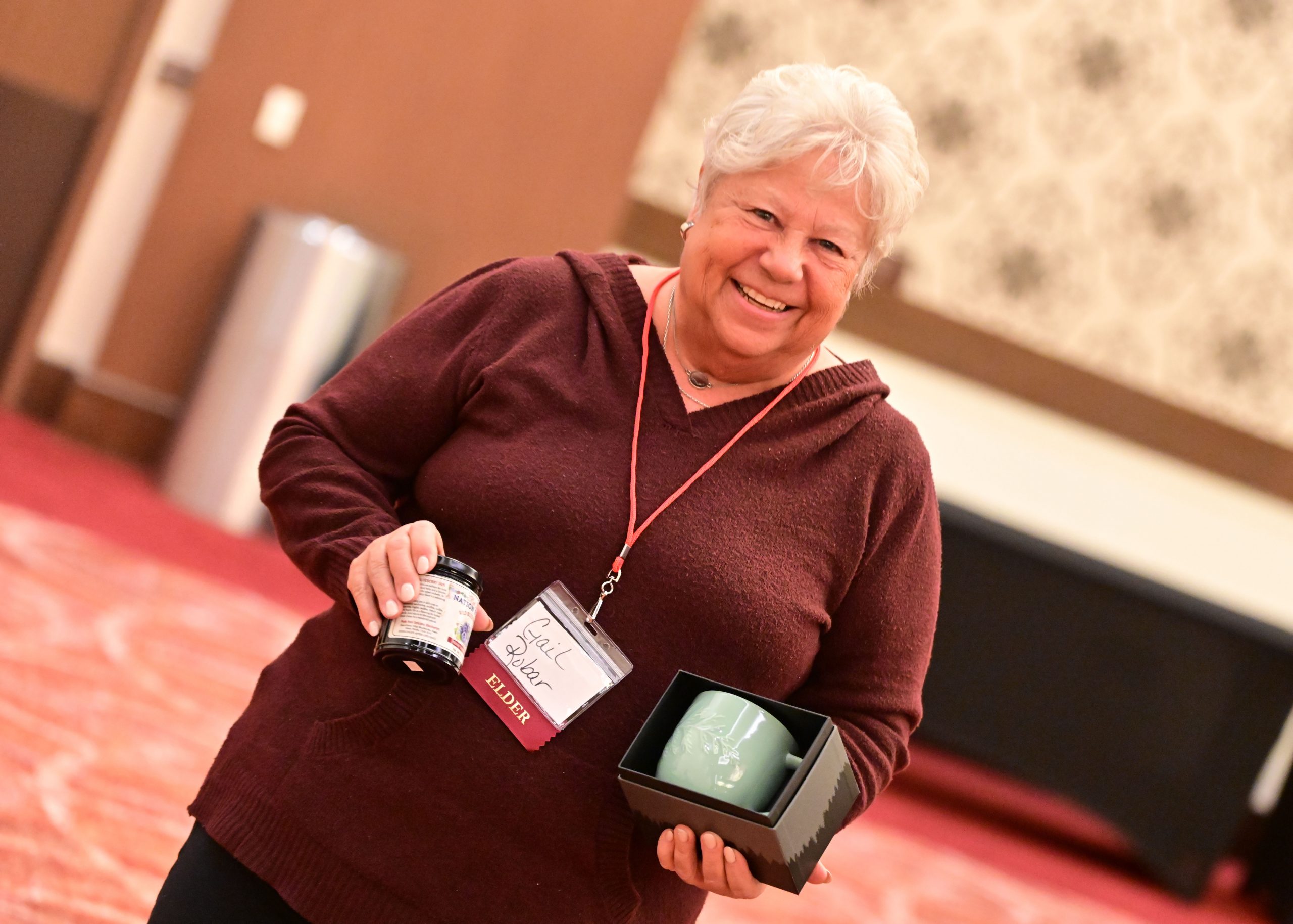
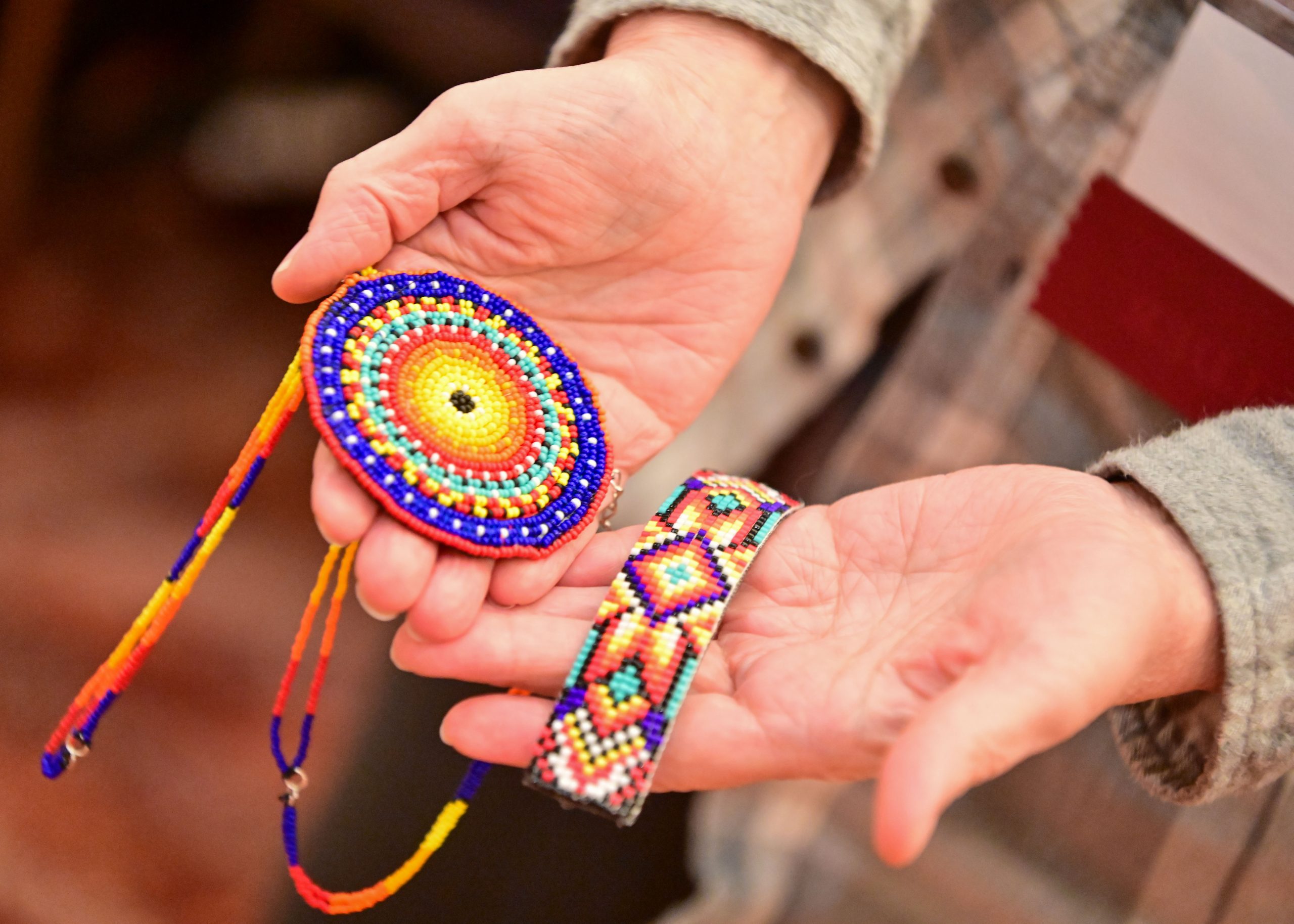
The funds raised are earmarked for MIEA educational scholarships and the MIEA Student Incentive Program, which recognizes students who achieve all A’s for a marking period and students who achieve perfect attendance for a marking period, further emphasizing the Elders’ commitment to supporting the youth and ensuring the continuity of their educational experience.
The MIEA Conference serves as a vital link between the Elders and the younger generations, bridging the gap through scholarship programs and educational support. The emphasis on education reflects a deep-seated belief in the power of knowledge and the importance of passing on traditions, wisdom, and skills to the next generations.
“I believe MIEA embodies and empowers both the Elders and our youth in the pursuit of education,” said Palmer.
The scholarships and student incentive programs are more than financial support; they are investments in the future, affirming the MIEA’s commitment to nurturing young minds and encouraging academic and personal excellence.
As day two came to a close, attendees were invited to an evening of dancing, while many Elders could be heard reminiscing about the fun they had while at this event.
“It was wonderful, the rooms, food, fellowship and MIEA business. Looking forward to the July Meeting,” said one attendee.
“The whole experience was great! I won two bids for the silent auction, made a shaker and pouch, and won a couple of ShiShiBé prizes, too! Miigwetch Nottawaseppi Huron Tribe!” said another attendee.
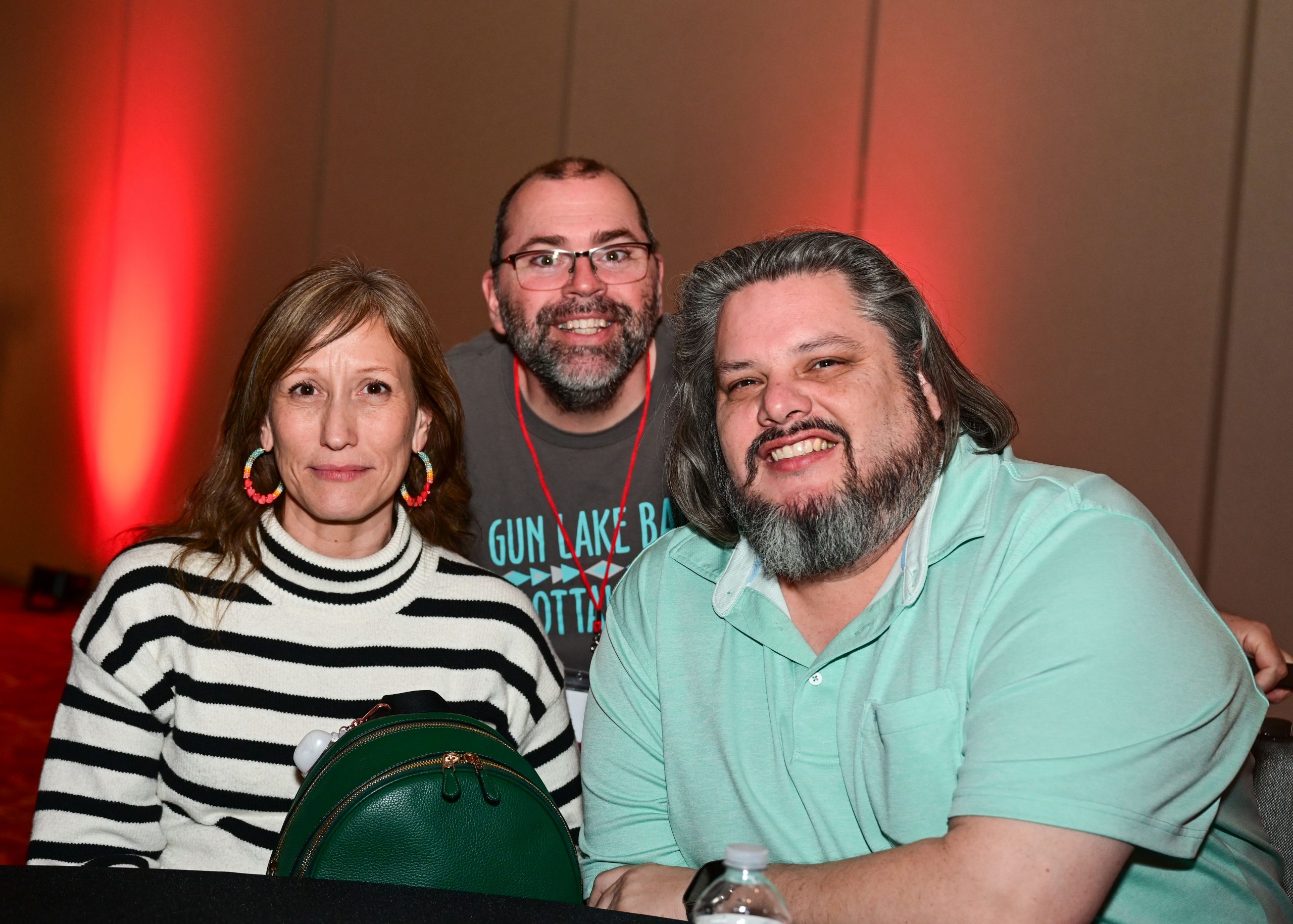

The MIEA Conference is more than an event; it’s a lifeline for many Elders, offering a sense of belonging, a source of inspiration and a platform for collective action. It exemplifies the spirit of collaboration, the joy of learning and connecting and the power of coming together to address common challenges and celebrate shared victories.
“I enjoy and value the personal connections I can make with Elders throughout the state,” said Palmer. “I see myself as a life-long learner. This conference assists in feeding my mind, body, and spirit.”
From the camaraderie and fellowship, to the exchange of stories and support, the conference embodies the collective spirit of Michigan’s Native American Tribes.
Looking ahead, the next MIEA Conference is scheduled for July, hosted by the Lac Vieux Desert Band of Lake Superior Chippewa Indians in Watersmeet, Michigan. It promises to continue the important work of fostering dialogue, collaboration and mutual support among Michigan’s Native American Elders.
Tribal youth interested in applying for a scholarship or the Student Incentive Program should reach out to the Education Office within your own Tribal Community for more information.
To view the full photo gallery click HERE.




0 Comments